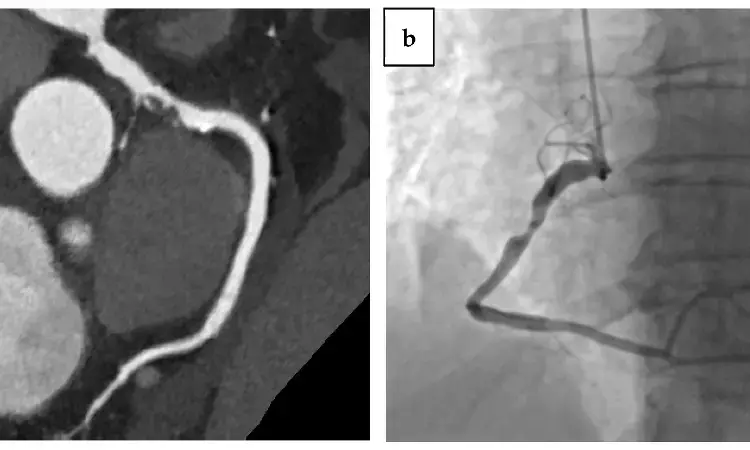- Home
- Medical news & Guidelines
- Anesthesiology
- Cardiology and CTVS
- Critical Care
- Dentistry
- Dermatology
- Diabetes and Endocrinology
- ENT
- Gastroenterology
- Medicine
- Nephrology
- Neurology
- Obstretics-Gynaecology
- Oncology
- Ophthalmology
- Orthopaedics
- Pediatrics-Neonatology
- Psychiatry
- Pulmonology
- Radiology
- Surgery
- Urology
- Laboratory Medicine
- Diet
- Nursing
- Paramedical
- Physiotherapy
- Health news
- Fact Check
- Bone Health Fact Check
- Brain Health Fact Check
- Cancer Related Fact Check
- Child Care Fact Check
- Dental and oral health fact check
- Diabetes and metabolic health fact check
- Diet and Nutrition Fact Check
- Eye and ENT Care Fact Check
- Fitness fact check
- Gut health fact check
- Heart health fact check
- Kidney health fact check
- Medical education fact check
- Men's health fact check
- Respiratory fact check
- Skin and hair care fact check
- Vaccine and Immunization fact check
- Women's health fact check
- AYUSH
- State News
- Andaman and Nicobar Islands
- Andhra Pradesh
- Arunachal Pradesh
- Assam
- Bihar
- Chandigarh
- Chattisgarh
- Dadra and Nagar Haveli
- Daman and Diu
- Delhi
- Goa
- Gujarat
- Haryana
- Himachal Pradesh
- Jammu & Kashmir
- Jharkhand
- Karnataka
- Kerala
- Ladakh
- Lakshadweep
- Madhya Pradesh
- Maharashtra
- Manipur
- Meghalaya
- Mizoram
- Nagaland
- Odisha
- Puducherry
- Punjab
- Rajasthan
- Sikkim
- Tamil Nadu
- Telangana
- Tripura
- Uttar Pradesh
- Uttrakhand
- West Bengal
- Medical Education
- Industry
Coronary artery calcium evaluation with chest CT strongly linked to severity of coronary disease and mortality

Ischemic heart disease (IHD) is a leading cause of death worldwide. Also referred to as coronary artery disease (CAD) and atherosclerotic cardiovascular disease (ACD), it manifests clinically as myocardial infarction and ischemic cardiomyopathy.
Coronary artery calcium evaluation with chest CT is strongly associated with severity of coronary artery disease and mortality suggests a new study published in the Heart, Lung and Circulation.
Coronary artery calcium (CAC) evaluated on dedicated cardiac computed tomography (CT) is an independent predictor of cardiovascular events. This study aimed to evaluate the correlation between CAC detected on non-gated standard chest CT and coronary lesions on coronary angiography (CAG) and determine its impact on prognosis.
Consecutive patients who underwent CAG due to acute coronary syndrome and had prior non-contrasted non-gated chest CT were included and retrospectively evaluated. Coronary artery calcium was evaluated by quantitative (Agatston score) and qualitative (visual assessment) assessment.
RESULTS
A total of 114 patients were included in this study. The mean time difference between chest CT and CAG was 23 months. Coronary artery calcium was visually classified as mild, moderate, and severe in 31%, 33%, and 16% of patients, respectively. Moderate or severe CAC was an independent predictor of significant lesions on CAG (OR 22; 95% CI 8-61; p<0.001) and all-cause mortality (OR 4; 95% CI 2-9; p=0.001). Quantitative CAC evaluation accurately predicted significant lesions on CAG (AUC 0.81; p<0.001). While significant CAC was identified in 80% of chest CTs, formal reporting was 25%.
Coronary artery calcium evaluation with chest CT was feasible and strongly associated with severity of coronary disease on CAG and mortality. Although the identification of CAC on chest CT represents a unique opportunity for cardiovascular risk stratification for preventive care, CAC underreporting is frequent.
Reference:
Silva, Beatriz Valente, et al. "Coronary Artery Calcium Identified On Non-Gated Chest CT Scans: a Wasted Opportunity for Preventive Cardiological Care." Heart, Lung & Circulation, 2023.
Keywords:
Heart, Lung and Circulation, Coronary artery, calcium, evaluation, with, chest, CT, strongly, associated, severity, coronary, disease, mortality
Dr. Shravani Dali has completed her BDS from Pravara institute of medical sciences, loni. Following which she extensively worked in the healthcare sector for 2+ years. She has been actively involved in writing blogs in field of health and wellness. Currently she is pursuing her Masters of public health-health administration from Tata institute of social sciences. She can be contacted at editorial@medicaldialogues.in.
Dr Kamal Kant Kohli-MBBS, DTCD- a chest specialist with more than 30 years of practice and a flair for writing clinical articles, Dr Kamal Kant Kohli joined Medical Dialogues as a Chief Editor of Medical News. Besides writing articles, as an editor, he proofreads and verifies all the medical content published on Medical Dialogues including those coming from journals, studies,medical conferences,guidelines etc. Email: drkohli@medicaldialogues.in. Contact no. 011-43720751


